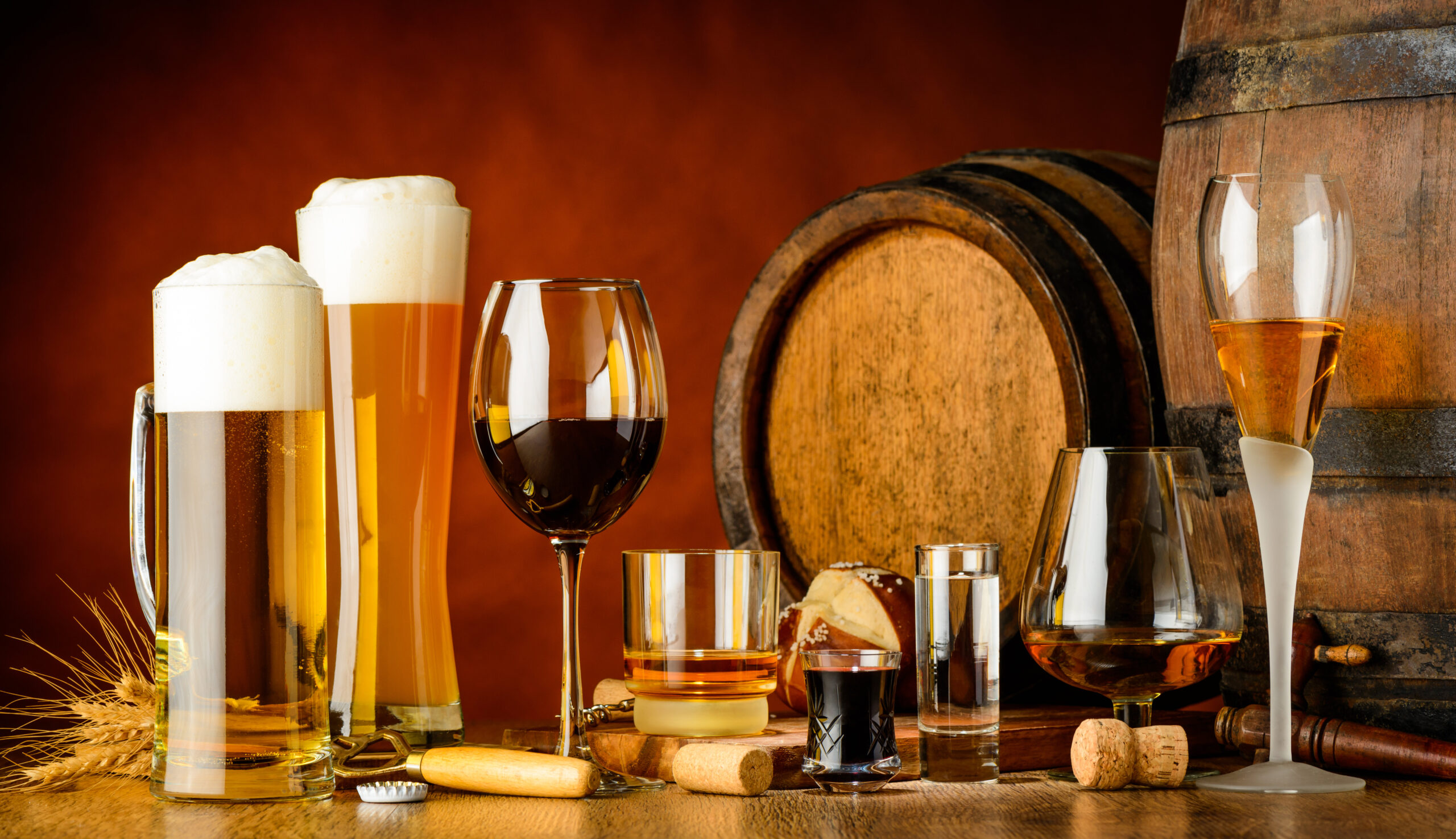Alcohol and cancer are linked in a new study. While it’s common knowledge that smoking cigarettes increases cancer risk, somehow alcohol — also known to correlate with higher cancer risk — has escaped the rap.
But increased research on the health risks of alcohol and more governments regulating alcohol labels may help change the public’s perception.
A National Institutes of Health study in 2023 found that over 50% of Americans were unaware that drinking alcohol raises one’s risk of cancer.
“The mentality of ‘even one cigarette is bad for you’ is widely known, but for alcohol, the idea of ‘even one drink is bad’ doesn’t hold the same degree of impact,” said Rachel Waters, director of professional services at the UF Health Florida Recovery Center.
Even occasional drinkers raise their cancer risk, as alcohol is classified by the International Agency for Research on Cancer as a human carcinogen that damages DNA cell structure. And the World Health Organization maintains that “when it comes to alcohol consumption, there is no safe amount that does not affect health.”
Alcohol and Cancer are Linked
Research shows a definite link between alcohol consumption and cancer risk. Alcohol has been linked to specific cancers including mouth, throat, esophagus, voice box, colon, rectum, liver, and breast. To better quantify these risks, the National Cancer Institute pooled data from studies across the globe and found the following:
• Mouth and throat cancer: Moderate drinkers raise their risk of mouth cancer by 180% and throat cancer by 140% versus nondrinkers. Heavy drinkers increase their risk 500% and 260% for mouth and throat cancer, respectively.
• Esophageal cancer: Alcohol in any amount raises the risk of an esophageal cancer known as esophageal squamous cell carcinoma. When compared with no alcohol consumption, the risk was found to increase by 160% for light drinkers and up to 500% for heavy drinkers.
• Liver cancer: Heavy consumption has been linked to a 200% increase in two forms of liver cancer known as hepatocellular carcinoma and intrahepatic cholangiocarcinoma.
• Breast cancer: A link has been found between increased risk of breast cancer and increased alcohol consumption. In data collected from 118 studies, light drinkers were found to increase their breast cancer risk by 104%, moderate drinkers by 123%, and heavy drinkers by 160%, compared with nondrinkers.
• Colon cancer: Moderate-to-heavy drinking increases the risk of colon or rectal cancer by 120% to 150%, respectively.
Alcohol Intake Recommendations and Warnings
In accordance with these findings, the Dietary Guidelines for Americans 2020-25 recommend abstaining or consuming no more than two drinks for men or one drink for women daily. However, even at lower levels, alcohol use increases the risk for some cancers. The guidelines describe alcohol as “the most widely consumed class of substances for which human carcinogenicity is definitively established.”
Some countries and U.S. states are adding warning labels to alcoholic beverages. As recently as January 2024, Alaska became the second U.S. state after California to enact cancer warning label policies with its Alcoholic Beverage Control Act. In 2018, Ireland became the first country to create laws requiring that alcohol products be accompanied by cancer risk warnings.
While these steps may seem small, they mark the beginning of growing cognizance about alcohol’s health risks. Waters said she hopes more people will consider the risk before building a social life around alcohol. “One piece of advice I would suggest is to ask yourself what alcohol is providing you in your life,” Waters said. “Are there healthier ways to receive that?”
If you have concerns about alcohol use, talk to your doctor to learn more about alcohol’s risks and how to curtail or end your consumption.
Click here to read more about the link between alcohol and cancer.






